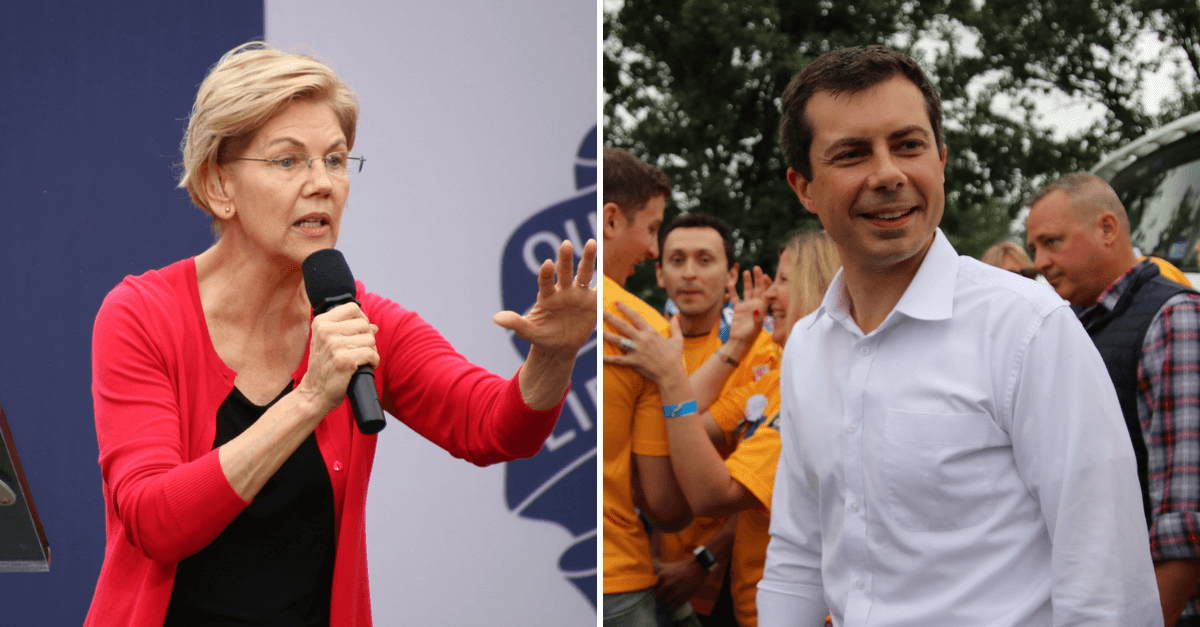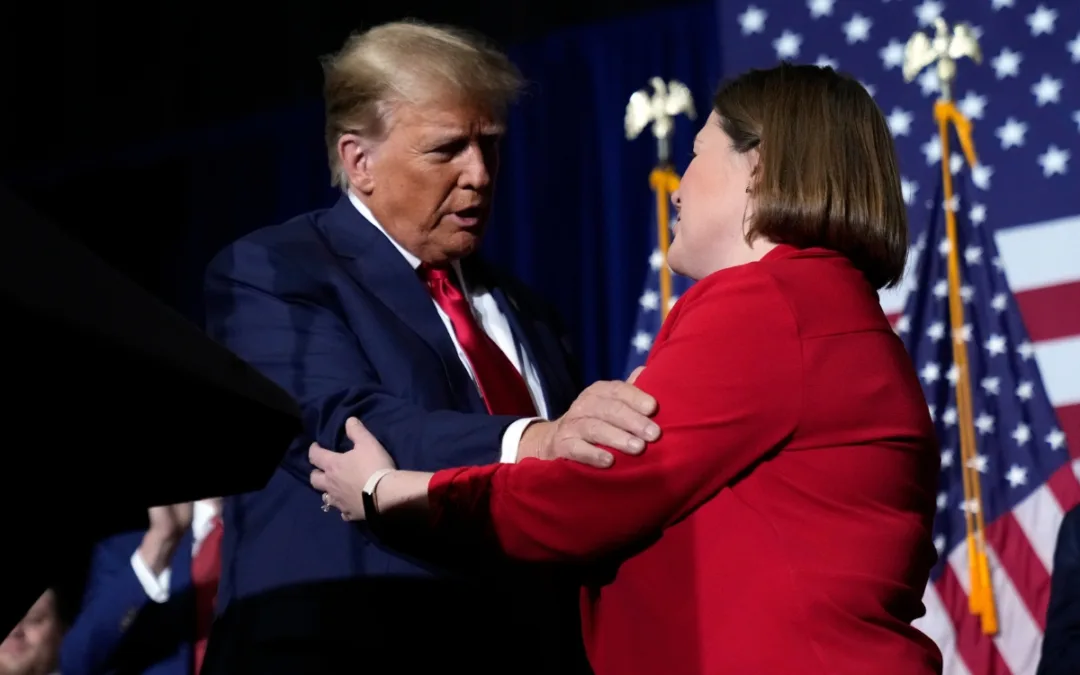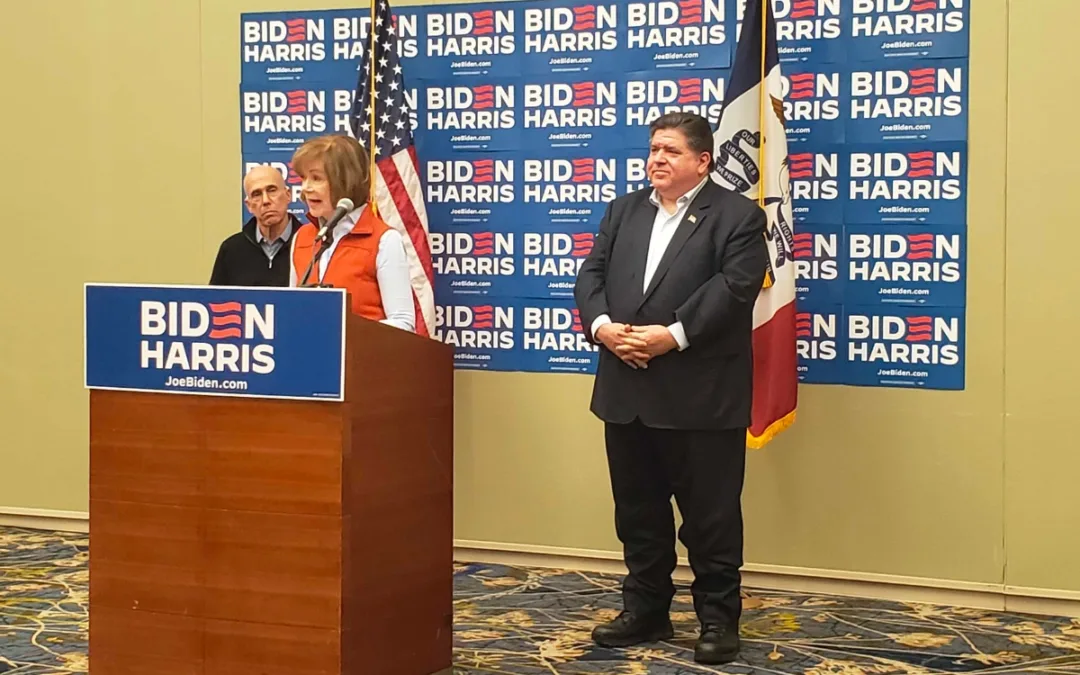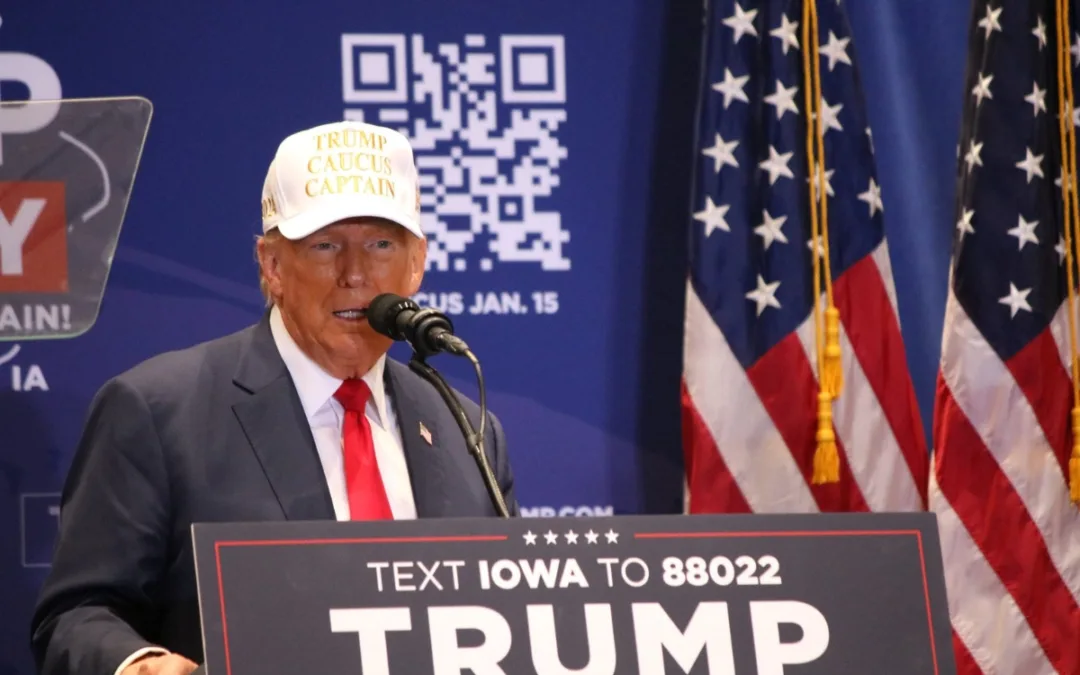
Photos by Julie Fleming
The fourth presidential debate seemed to mark yet another new chapter in the Democratic primary, with Elizabeth Warren taking all the attention of a front-runner, and Pete Buttigieg debuting a more aggressive approach.
Those new dynamics at play got plenty of ink in relation to the national picture, but where the real consequences could play out is over the next few months with Iowa caucus-goers.
Regardless of what the national polls show, both Warren and Buttigieg continue to draw the largest crowds of the field in Iowa since Labor Day. Warren is the favorite to win the state on February 3 at this point, while Buttigieg seems to have enough grassroots enthusiasm that he could see a late surge in Iowa before caucus night.
But both are engaged now in some risky strategies that could scramble that outlook if things don’t work out as planned. Here’s how things could play out.
[inline-ad id=”3″]
Buttigieg’s Medicare for All Attack
While Buttigieg has somewhat quietly staked out some more moderate positions during the primary, his direct attack on Warren’s Medicare for All plan in the debate represented a new, much more assertive tactic. He landed some good blows on Warren’s positions, pointing out that she’s not willing to openly admit the tax costs for universal coverage, something that Starting Line found struck a nerve with Iowans at debate watch parties.
But others have been doing that messaging work against Medicare for All for months. And Buttigieg’s attacks drew the ire of progressive groups, painting a target on his back from that crowd, which hasn’t engaged with him as much in the past. Some dug up not-so-old tweets of his past public support of Medicare for All.
And while it may have helped him in the bigger picture in facing off with Warren, it also will certainly hurt him with more progressive caucus-goers who had been open to Buttigieg. Just anecdotally on Iowa Democratic social media circles, the pushback on Buttigieg from progressive activists was intense during and after the debate.
[inline-ad id=”2″]
Of course, much of Iowa’s progressive voting bloc will be in either Warren or Bernie Sanders’ corner on caucus night.
But here’s where things get dangerous for Buttigieg: realignment.
As I’ve written before, no candidate in this crowded of a field is going to be viable in every single precinct in the state. And if Sanders continues his downward slide in the polls, there’s a good chance his group of supporters don’t reach the 15% viability threshold in some areas. One spot in particular will probably be suburban precincts where Buttigieg himself should be strong.
But where do those Sanders backers go during realignment? Early on in the race, younger progressive activists seemed open to Buttigieg, in part due to his youth, new perspective and the historic nature of a LGBTQ presidency. However, there’s a difference between a candidate with less-progressive views on some issues and a candidate who is outright attacking those views. Some Iowans who liked Buttigieg for other reasons may take his health care stance into stronger consideration now.
Certainly, the majority of Sanders caucus-goers would flow to Warren, but even this cycle, when Sanders’ core base is more narrow, his bloc of support is not monolithic in their views. An extra delegate for Buttigieg in many precincts could hinge on whether he gets 30% of those non-viable Sanders voters or only 5%.
[inline-ad id=”1″]
Warren’s Silence On The Airwaves
For the entire year, Warren has been on a slow, steady, relatively uneventful march to the nomination. Everything has been going right since the spring, from steady debate performances to her buildup of a stellar ground game to her policy plans essentially becoming a positive meme for her candidacy.
Now that her poll numbers have caught up to her work, she’s started to take a lot more incoming fire from other candidates and closer scrutiny from the press. This was all going to happen at some point, obviously, but it will still be a test for Warren.
And while she has a lot of good things going for her in Iowa, here’s one area where Warren is invisible: the TV airwaves.
[inline-ad id=”0″]
Several weeks ago, many reporters wrote up stories on Warren placing an Iowa TV buy. But that wasn’t until January. The real story out of that is that Warren isn’t currently planning on running anything until the final month, when every candidate is going to be unloading their last dollars into Iowa media.
Warren is the only of the top-tier candidates not currently running TV ads here. Currently up on Iowa TV are: Buttigieg, Sanders, Joe Biden, Tom Steyer and Michael Bennet. An Amy Klobuchar TV run appears to have just ended.
That’s odd, especially given Warren’s healthy war chest. Warren, Buttigieg and Sanders all have over $20 million cash on hand (no one else in the field has more than $10.5 million). Steyer’s ability to spend is practically endless. So why is Warren the lone candidate among those who easily have the cushion to do so not up on early state TV?
Warren has gotten to where she is in Iowa thanks to many early visits from the candidate herself, a strong field operation and positive press and social media chatter. But she’s going to have some rough patches. And if you’ve built your base of support in Iowa in part on positive social media and news, once that national narrative flips, you could be in trouble.
There’s a reason people run TV ads, even in today’s social media landscape, because it keeps your positive message in front of many Iowa voters nonstop, especially the older ones that regularly caucus.
Warren maintaining her lead here, even with as strong of fundamentals as her campaign has, is not guaranteed. It’s not a perfect comparison by any means, but Hillary Clinton was looking like the prohibitive winner in October of 2007, until a botched answer on immigrant drivers licenses where she appeared to take both sides of the issues in an October debate kicked off her collapse.
October and November is not the time you want to start sliding in the polls.
Warren has proven herself a very formidable candidate who has handled herself well under pressure in most of the debates and on the campaign trail, but the increased attacks and attention will be a bigger challenge to overcome. Why you wouldn’t want your message up on TV while you weather that storm sure seems like a risky choice.
by Pat Rynard
Posted 10/17/19
Politics

6 terrifying things that could happen if the Comstock Act is used to target abortion
Does 1873 sound like a really, really long time ago? Well, that’s because it is—but if Republicans and far-right anti-abortion activists have their...

Iowa parents explain how ‘fetal personhood’ would harm IVF
Lyndi Buckingham-Schutt and her husband Andy Schutt, both Des Moines residents, always knew they wanted to have children. When Lyndi was 30, they...
Local News

No more Kum & Go? New owner Maverik of Utah retiring famous brand
Will Kum & Go have come and gone by next year? One new report claims that's the plan by the store's new owners. The Iowa-based convenience store...

Here’s a recap of the biggest headlines Iowa celebs made In 2023
For these famous Iowans, 2023 was a year of controversy, career highlights, and full-circle moments. Here’s how 2023 went for the following Iowans:...





